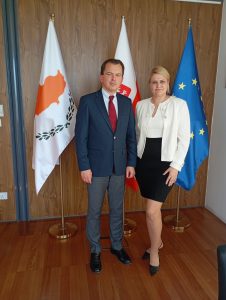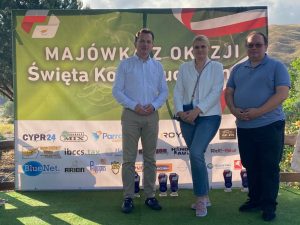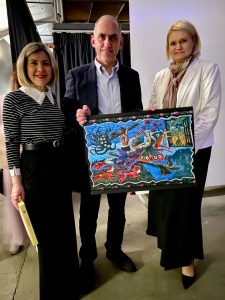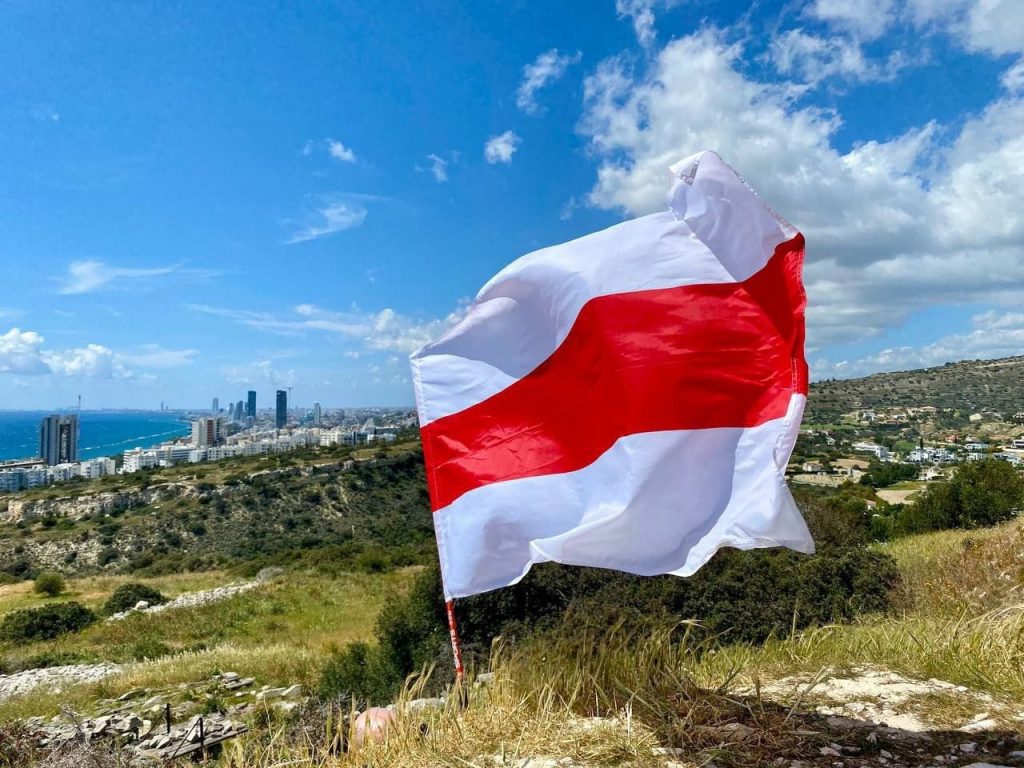Behind every forced departure lies a broken life. Behind the statistics lie pain, suffering, and fear. The last few years have been a series of personal disasters for more than a million Belarusians who found themselves outside their homeland not of their own free will, but out of fear of repression, prison, death, and an inhumane dictatorial regime. For many, Cyprus has become a place where they have found safety and hope for a new life. But on the island, they have encountered bureaucratic dead ends and legal uncertainty. A silent struggle for survival has begun — without passports, without consular services, without the possibility of returning.
Living outside the law without breaking the law
In 2023, more than 2,300 Belarusian citizens applied to the Cypriot migration services for residence permits. Today, the Belarusian diaspora numbers about 5,000 people of different ages, professions, and backgrounds. Among them are programmers, architects, engineers, doctors, entrepreneurs, students, and mothers with children.
Most of these people have never participated in protests or been activists, but this has not saved many of them from torture, imprisonment, and abuse.
In 2023, in order to make life more difficult for citizens who had left the country and whom it considered its enemies, the Belarusian regime issued Decree No. 278, prohibiting the renewal of passports abroad. Thousands of Belarusians abroad found themselves in a legal vacuum. Without a passport, without legal status, without the possibility of obtaining a visa, extending a residence permit, or registering a child. Even obtaining a simple notarized certificate became an insurmountable problem.
In Cyprus, hundreds of families were left without documents, without money, without a future. Returning to Belarus to get the paperwork done is tantamount to suicide.
Self-organization
In these conditions, something emerged that the regime could not have foreseen: solidarity among Belarusians. An initiative called the Democratic Embassy of Belarus (DBE) was born in Cyprus — an informal structure that became the voice and defender of the Belarusian diaspora on the island. Created without an office, without a budget, without a mandate, it turned out to be the only mechanism of assistance for people for whom their own country had become a mortal enemy.
The initiative is led by Alesya Parkhomenko, a Belarusian who has been living in Cyprus since 2018.

Without a team of assistants or a salary, sacrificing her time and resources, she has become a defender of the fate and sometimes the lives of her compatriots. She is supported only by a few Belarusian entrepreneurs living on the island, whose names we cannot disclose for security reasons. Unfortunately, the needs of the community exceed their capabilities.
Alesya responds to dozens of requests, corresponds with Cypriot ministries, communicates with embassies, helps draft letters, find lawyers, and translate documents. In critical situations, she is always there for those who need help.
It is thanks to her efforts that the Belarusian issue was raised for the first time in the Cypriot parliament. Thanks to her, Cyprus became one of the first EU countries to recognize the need to legalize Belarusians with invalid passports. Thanks to her work, Belarusians are now more likely to be issued Polish visas. This is not diplomacy in the classical sense. It is diplomacy of desperation, a courageous and uncompromising struggle for the right to exist.
Embassy of Hope
Today, the Democratic Embassy in Cyprus is not just about helping with bureaucratic issues. It is a space for Belarusians in Cyprus to share their common destiny. Cultural events are organized here, national holidays are celebrated, and meetings for political prisoners are held. In December 2023, Belarusians in Cyprus raised more than €5,000 to help the children of those who have been repressed. This is more than any other diaspora in Europe. It is an act of collective memory and unyielding will, a reminder to themselves and to the world that they still exist.
Recently, Cyprus hosted a performance of Voices from Chernobyl, based on the book by Nobel Prize winner Svetlana Alexievich, a poignant story of pain, memory, and dignity. Thanks to the efforts of Alesya Parkhomenko, the play became not just a cultural event, but an act of public recognition of the Belarusian diaspora. The performance was attended by members of the Cypriot parliament and government, as well as diplomats from the US and Poland. Their presence was a gesture of solidarity with Belarusians forced to seek refuge far from their homeland and a symbol of international support for their struggle for the right to life, a voice, and a dignified existence.
Representatives of the PDB actively cooperate with Polish, Ukrainian, and American diplomatic missions in Cyprus, participate in initiatives of other diasporas, and support families of Belarusians in trouble, sometimes doing the impossible.



Suspended in limbo
But despite the successes, hundreds of Belarusians in Cyprus still live in an illegal situation. Their passports have expired, their children have no birth certificates, and the migration services demand documents that are impossible to obtain. All this falls on the fragile shoulders of one woman and a small but resilient community. Without a state budget, without diplomatic immunity, only with willpower and faith in freedom.
Looking to the future
The DPB plans to expand its cooperation with human rights organizations, attract international partners, and hold new cultural events. But most importantly, it wants to strengthen ties within the community itself. Because in exile, it is more important than ever to be together.

And as long as these people live, help each other, build a community, raise children, translate documents, put on plays, and send gifts to children, Belarus also lives. Even if it is on a distant foreign island. And very soon, these people will become the foundation of a future free, European Belarus.
Long live Belarus!

